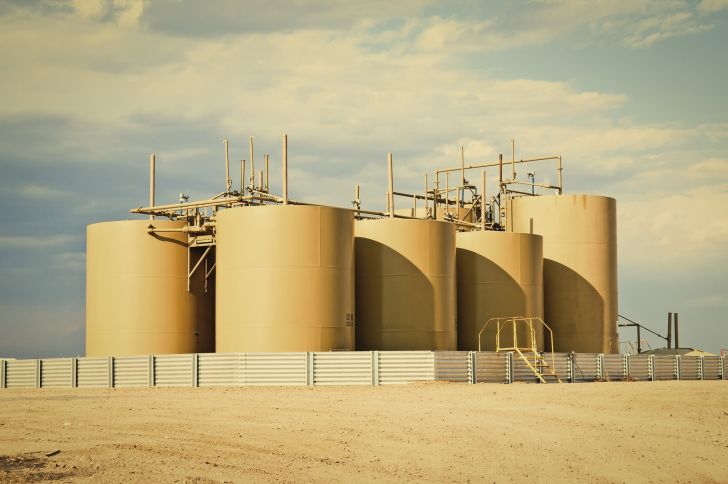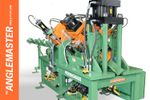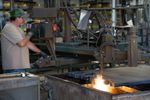First, the good news: There is a staggering number of options available for bulk oil storage tanks.
Now, the bad news: there is a staggering number of options available if you’re in the market for a bulk oil storage tank!
Back in 1961, the American Petroleum Institute published the API Standard 650, which covers material, design, fabrication, erection, and inspection of petroleum tanks. The standard is designed to provide flexibility for the owner: As long as bulk oil storage tanks meet these minimum requirements, they can be of any size. Safety is a priority, but beyond that, a tank buyer has a lot of options.
The Five Keys to API Standard 650
With so much built-in flexibility, it’s important to keep focused on five main components of the API 650:
1. Material
Carbon steel and stainless steel are the most common materials used for bulk oil storage tanks. There are some regulations concerning alloys, minimum and maximum design metal temperature (the lowest and highest temperatures that a plate can withstand given the chosen material and thickness), impact testing, and toughness, but they are all laid out in a chart to check conformity.
2. Weld Quality
Plate strength is only as good as the welds that hold them together. Welds must be compatible with the chemistry, strength, and quality of the plate material.
As with material standards, the welding standards are all laid out in tables to ensure safety. But additional design concerns include the foundation on which the tank will lie, corrosion allowance, hardness testing, and overfill protection.
And don’t forget about the design of other components of a bulk oil storage tank: fixed and floating roofs, pipes and pipe couplings, manholes, flanges, gaskets, and nozzles are all covered in the API Standard 650 as well.
3. Plate Integrity
One of the main concerns in fabrication is compromising the integrity of the plates. Straightening must be done by rolling or some other metal forming method that won’t damage the plate. Lubricants, adhesives, and anti-weld splatter compounds must not contain materials such as sulfur and chloride compounds that may affect stainless steel.
In an ideal situation, your fabricator will have a large enough facility so that bulk oil storage tanks can be constructed at their shop. If not, pieces need to be carefully packed to protect them from corrosion, as well as damage during the shipping process.
4. Erection
While the foundation and grade work is usually the purchaser’s responsibility, your manufacturer needs to examine level tolerances and grade contours before they begin the installation and notify you of any potential problems.
Once the foundation is deemed acceptable by the installer, it is the installer’s responsibility to maintain the grade and keep it free of debris.
Field welding can be performed using shielded metal-arc, gas metal-arc, gas tungsten-arc, oxyfuel, flux-cored arc, submerged-arc, electroslag, or electrogas processes. The important thing is that you agree on a method with the installer. The welding must also be performed when conditions are good (i.e. no surface moisture from rain, ice, or snow).
5. Inspection
Bulk oil storage tanks require a radiographic (X-ray) examination of shell welds, vacuum testing of floor welds, and other reviews to ensure safety.
Also, the purchaser must keep in mind any regional regulations, specialty permits, and owner requirements that may cover the tank itself and potential evaporation and liquid release.
Your Right to Quality Bulk Oil Storage Tanks
A key feature of the API 650 Standard for bulk oil storage tanks is that the buyer has the right to review all the documentation related to a job’s conformity to API 650, from steel-mill certifications to radiography examinations. Beyond that, you have the right to conduct inspections to ensure manufacturer compliance, and even the right to reject materials that fall outside the necessary criteria.
While it’s great to know about these rights, which are meant to protect your investment, you really don’t want to get into a position where you have to act as enforcer. You need a custom metal fabricator you can trust — one that you don’t have to police.
Ideally, you’d also benefit from finding a custom metal fabricator who is a good communicator, especially when it comes to inspections. All API 650-compliant bulk oil storage tanks require outside inspections to review the fabricator’s finished work and work in progress at key milestones.
At Southern Metal Fabricators, we pride ourselves on being a partner — rather than just a provider — for our customers, taking all the steps necessary to proactively ensure that our bulk oil storage tanks meet all client requirements.
We’ll not only make inspection scheduling easy, we’ll answer any questions you may have while we work together. We’re even happy to point out questions and concerns that should be on your radar when you’re still in the process of choosing a fabricator.
Our many years in the business give us a unique perspective on the things that can slip through the cracks, as well as aspects that are often taken too lightly. Give us a call at 1.888.421.9661 and let us help you find your ideal solution.





